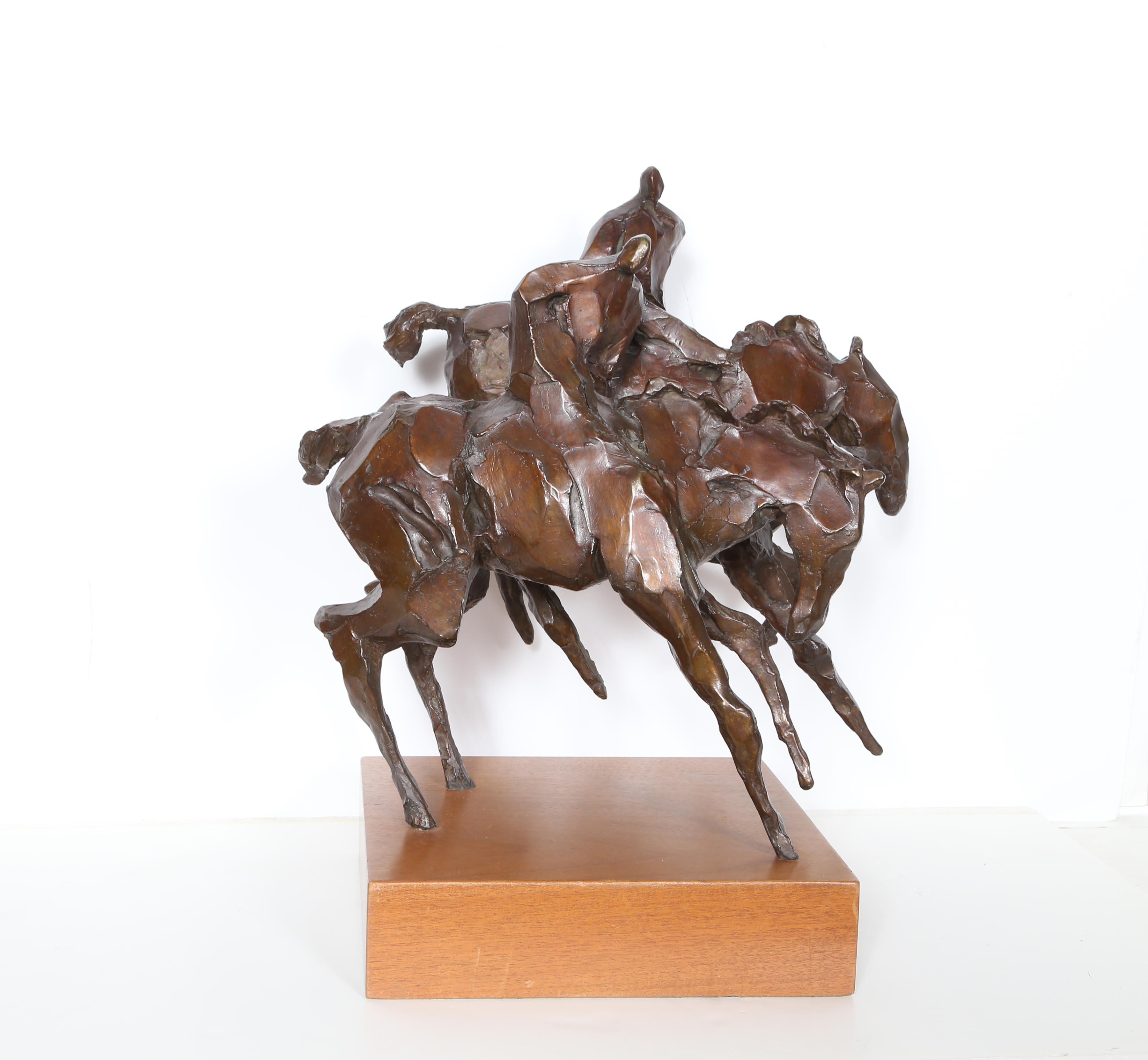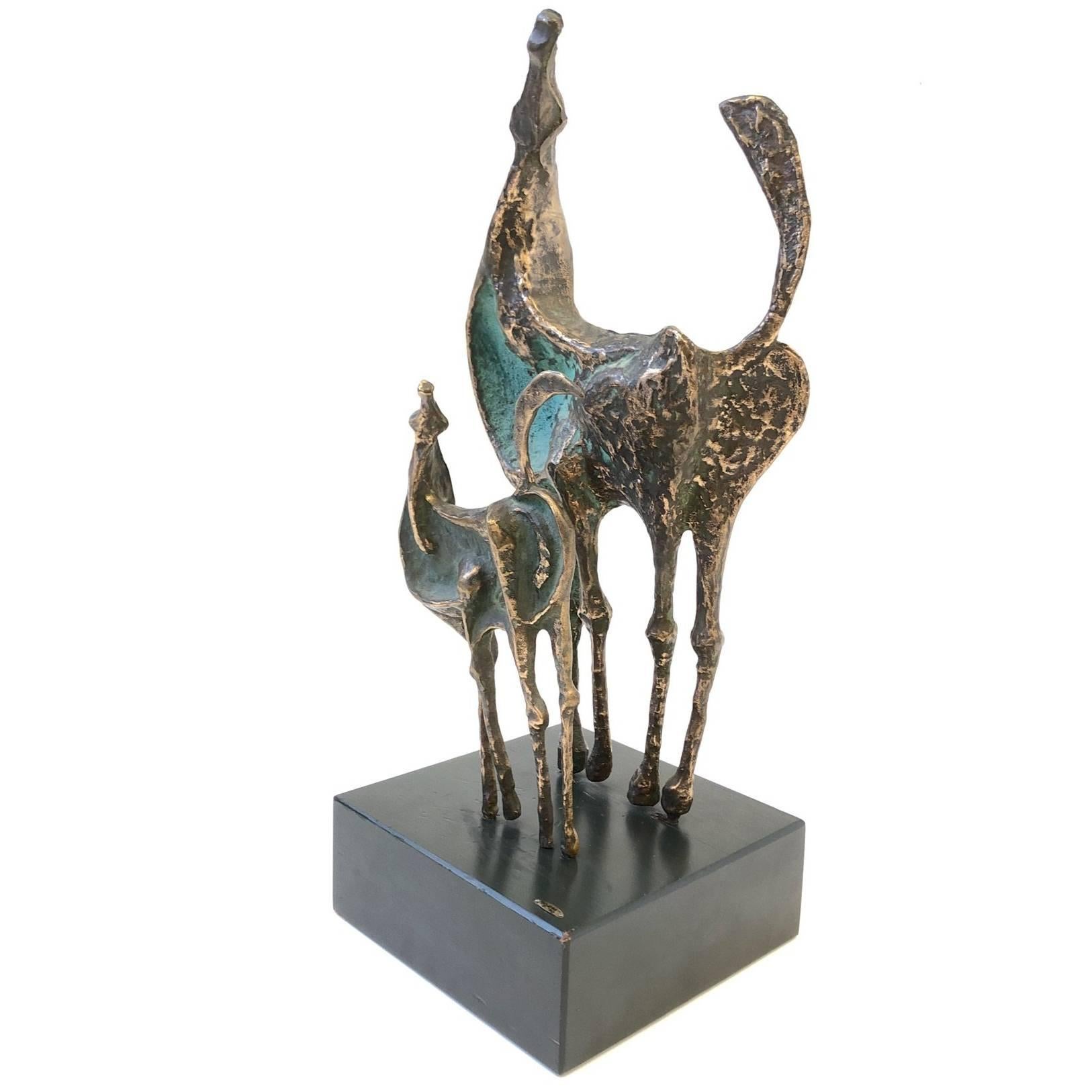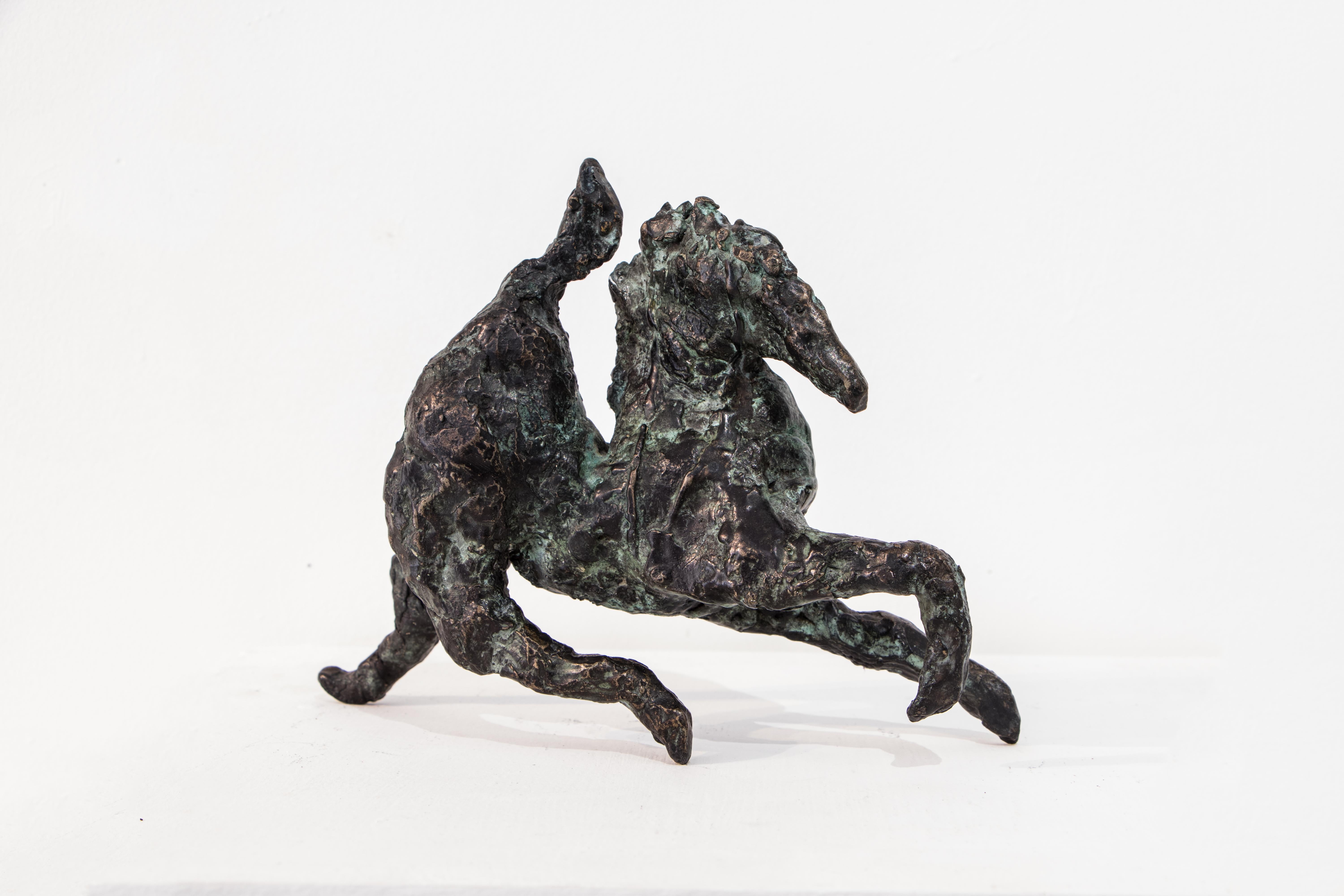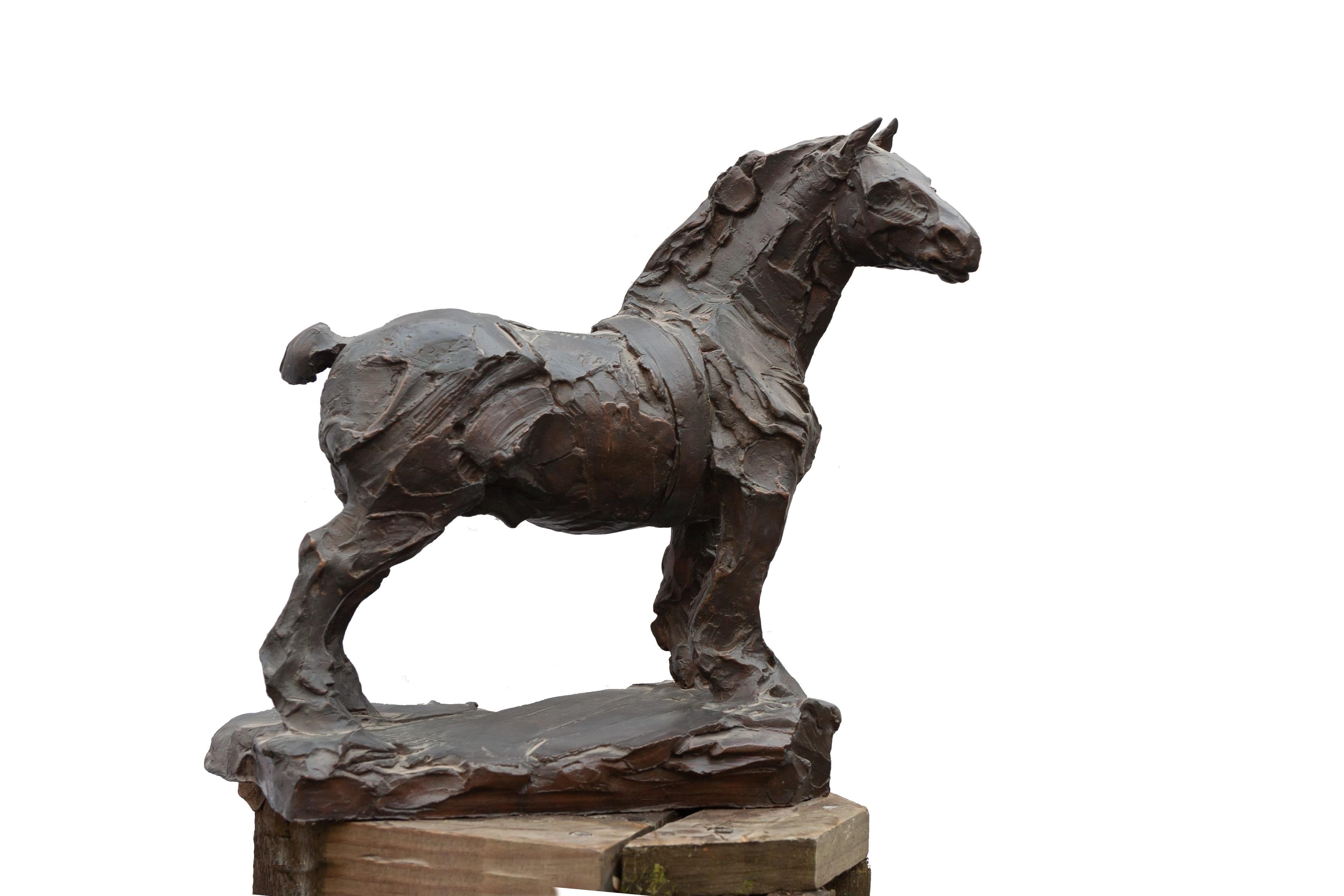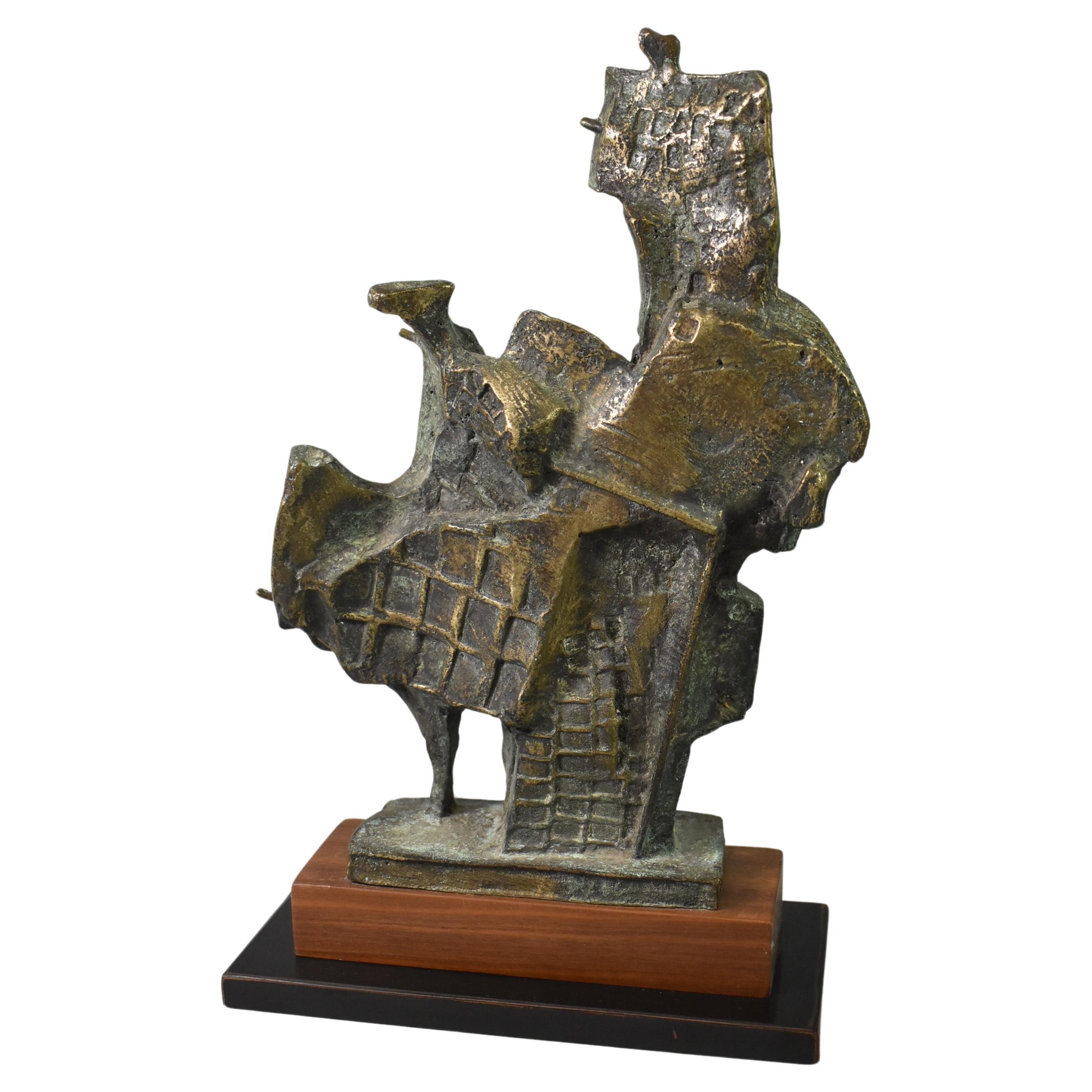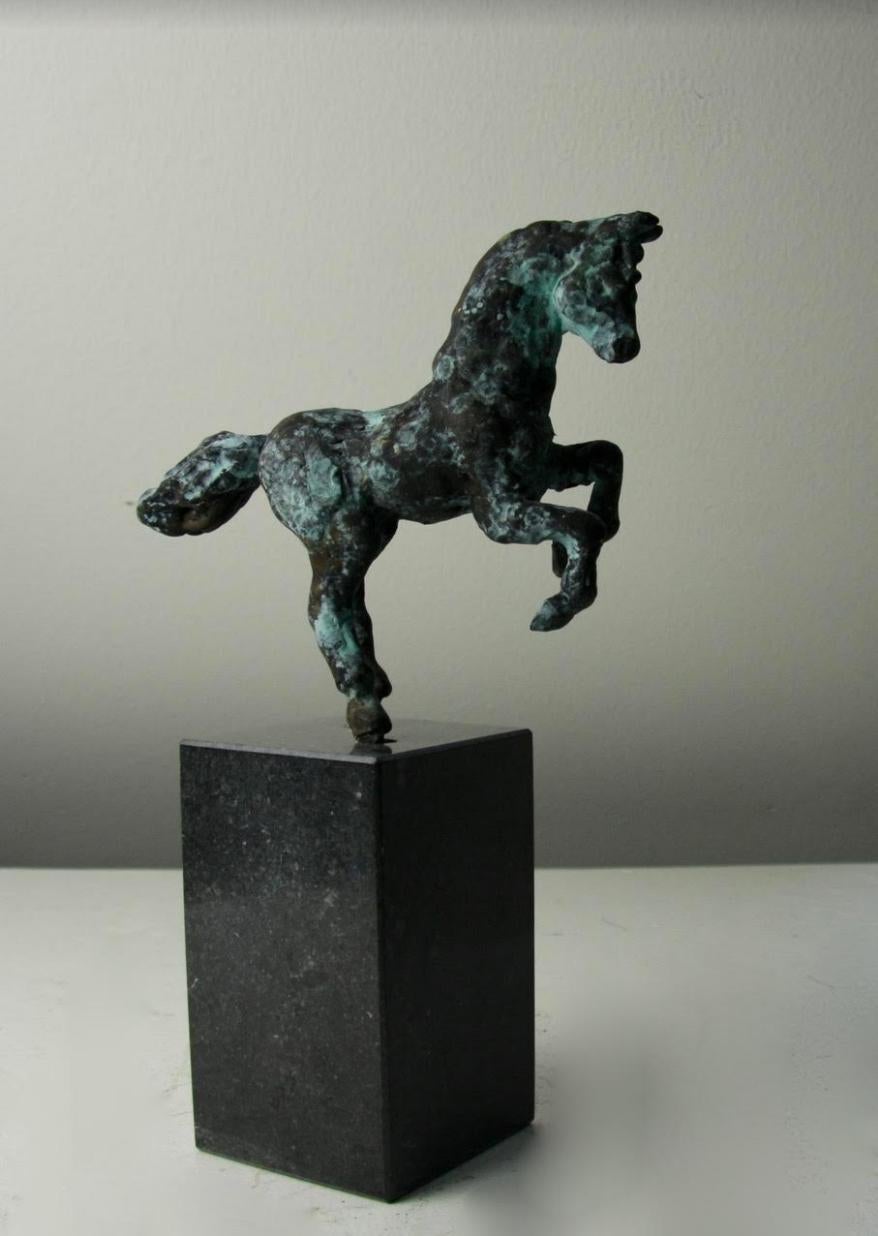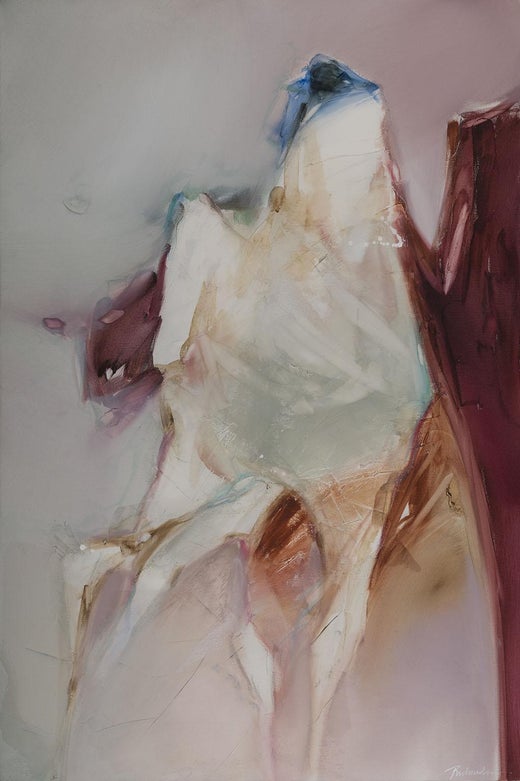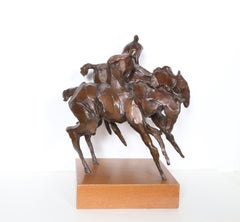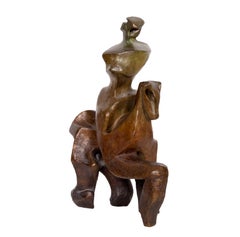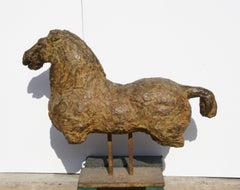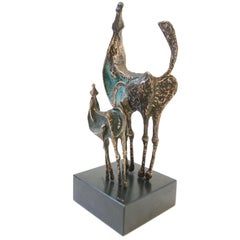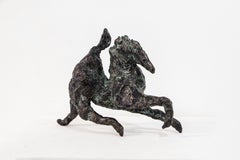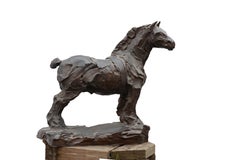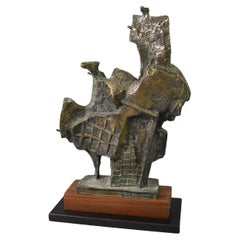Items Similar to Genesis, Bronze Horse Sculpture by Jean Richardson
Want more images or videos?
Request additional images or videos from the seller
1 of 6
Jean RichardsonGenesis, Bronze Horse Sculpture by Jean Richardson1989
1989
$4,500
£3,435.12
€3,948.90
CA$6,332.30
A$7,041.79
CHF 3,698.50
MX$86,092.89
NOK 46,086.83
SEK 43,447.43
DKK 29,471.56
About the Item
Artist: Jean Richardson, American (1940 - )
Title: Genesis
Year: 1989
Medium: Bronze Sculpture, signature and numbering inscribed
Edition: 50
Size: 16 x 15.5 x 12 inches
Base: 1.5 x 14 x 11 inches
- Creator:Jean Richardson (1940, American)
- Creation Year:1989
- Dimensions:Height: 17.5 in (44.45 cm)Width: 15.5 in (39.37 cm)Depth: 12 in (30.48 cm)
- Medium:
- Movement & Style:
- Period:
- Condition:
- Gallery Location:Long Island City, NY
- Reference Number:1stDibs: LU4662966281
Jean Richardson
Jean Richardson, born in 1940 in Hollis, Oklahoma, received her B.F.A. at Wesleyan College in Macon, Georgia, with additional training at the Art Students League in New York. Her work has been the subject of several solo gallery exhibitions including the Governor’s Gallery in the State Capitol of Oklahoma. It can also be found in numerous public collections including the State Collection of Oklahoma in Oklahoma City; Texas Christian University in Fort Worth, Texas; the University of Oklahoma Health Science Center and the Oklahoma City University School of Law, among others. Richardson and her work have also appeared in numerous books, periodicals and other media including “Who’s Who in American Art” and the 2009 public television series “Gallery.”
About the Seller
4.9
Platinum Seller
Premium sellers with a 4.7+ rating and 24-hour response times
Established in 1979
1stDibs seller since 2014
3,096 sales on 1stDibs
Typical response time: 1 hour
- ShippingRetrieving quote...Shipping from: Long Island City, NY
- Return Policy
Authenticity Guarantee
In the unlikely event there’s an issue with an item’s authenticity, contact us within 1 year for a full refund. DetailsMoney-Back Guarantee
If your item is not as described, is damaged in transit, or does not arrive, contact us within 7 days for a full refund. Details24-Hour Cancellation
You have a 24-hour grace period in which to reconsider your purchase, with no questions asked.Vetted Professional Sellers
Our world-class sellers must adhere to strict standards for service and quality, maintaining the integrity of our listings.Price-Match Guarantee
If you find that a seller listed the same item for a lower price elsewhere, we’ll match it.Trusted Global Delivery
Our best-in-class carrier network provides specialized shipping options worldwide, including custom delivery.More From This Seller
View AllGemini, Bronze Horse Sculpture by Jean Richardson
By Jean Richardson
Located in Long Island City, NY
Artist: Jean Richardson, American (1940 - )
Title: Gemini
Year: 1989
Medium: Bronze Sculpture
Edition: 10
Size: 18 x 19 x 12 in. (45.72 x 48.26 x 30.48 cm)
Base: 3 x 12 x 12 inches
Category
1980s Abstract Impressionist Figurative Sculptures
Materials
Bronze
Horse and Rider, Cubist Bronze Sculpture by Pearl Amsel
By Pearl Amsel
Located in Long Island City, NY
Modern Cubist sculpture by Pearl Amstel of a Horse and Rider.
Artist: Pearl Amsel (1931 - )
Title: Untitled - Horse and Rider
Year: 1974
Me...
Category
1970s Modern Abstract Sculptures
Materials
Bronze
Constelación Del Caballo Menor, Bronze Tabletop Sculpture by Binkele
By Lina Binkele
Located in Long Island City, NY
Bronze sculpture by Lina Binkele is a modern expressionist rendering of a horse. In the classic tradition, her horse sculptures capture the wonder of the animal's anatomy and the ma...
Category
20th Century Expressionist Figurative Sculptures
Materials
Bronze
Fragment No. 4, Bronze Sculpture by Lina Binkele
By Lina Binkele
Located in Long Island City, NY
Artist: Lina Binkele, Colombian
Title: Fragment No. 4
Year: 1995
Medium: Bronze Sculpture
Edition: 2/5
Size: 25 in. x 40 in. x 17 in. (63.5 cm x 101.6 cm x 43.18 cm)
Category
1990s Contemporary Figurative Sculptures
Materials
Bronze
Abstract Figures, Modern Bronze Sculpture by Arturo Di Modica
By Arturo Di Modica
Located in Long Island City, NY
Arturo Di Modica, Italian/American (1941 - ) - Abstract Figures, Year: 1980-81, Medium: Bronze sculpture, signature, numbering and date inscribed, Edition: 1/1, Size: 55 x 36 x 3...
Category
1980s Modern Abstract Sculptures
Materials
Bronze
Mustang, Bronze Sculpture by Arnold Goldstein
Located in Long Island City, NY
Bronze sculpture of a wild mustang horse created by American artist Arnold Goldstein. This artwork has the signature and numbering inscribed. Numbered...
Category
1970s American Modern Figurative Sculptures
Materials
Bronze
You May Also Like
Bronze Horses Sculpture by Curtis Jere
By Curtis Jeré
Located in Palm Springs, CA
A beautiful 1970s cast bronze horses sculpture by renowned designers Curtis Jerè.
The sculpture has a beautiful patina and its mounted on a wooden lacquer base.
The sculpture is s...
Category
Vintage 1970s American Modern Animal Sculptures
Materials
Bronze
"Strider", Contemporary Bronze Horse
By Danusia Wurm
Located in Brecon, Powys
Using the lost wax technique, all Danuta's bronzes are one-off originals
Patenated Bronze Free Standing
"The ripped raw edges of Elizabeth Frink; th...
Category
2010s Contemporary Figurative Sculptures
Materials
Bronze
Labour Horse Sculpture Bronze Standing Animal Power In Stock
By Lucie Sentjens
Located in Utrecht, NL
Labour Horse Sculpture Bronze Standing Animal Power In Stock
Lucie Sentjens (Brussels, 1959) is a sculptor, graduated from the Cambre in 1982 in the studio of Rik Poot.
She takes e...
Category
21st Century and Contemporary Contemporary Figurative Sculptures
Materials
Bronze
Carole Harrison Cast Bronze Abstract Sculpture
Located in Toledo, OH
Signed nice patina. Carole Harrison (10/30/33 - 4/4/22) - Born in Illinois, Carole studied at Cranbrook Academy of Arts in 1955/56, Bloomfield Hills, MI, obtaining her Masters, she w...
Category
20th Century North American Modern Abstract Sculptures
Materials
Bronze
Davinci's Horse Rears by Helle Crawford, Bronze sculpture of a horse
By Helle Rask Crawford
Located in DE
Bronze sculpture of a horse that rears on granite base
Category
21st Century and Contemporary Contemporary Figurative Sculptures
Materials
Granite, Bronze
Carole Harrison Cast Bronze Modernist Sculpture of 2 Horses, 10 1/4" tall
Located in Toledo, OH
This abstract of two horses by Carole Harrison has blue glazing in the texturing. This piece is 6 1/2" wide, 2 5/8" deep and 10 1/4" tall. Carole Harrison (10/30/33 - 4/4/22) - Born ...
Category
20th Century American Modern Abstract Sculptures
Materials
Bronze
Read More
Romare Bearden’s Humanity Infuses His Bright, Bold Art
Through collage, painting and printmaking, the artist foregrounded Black life in America in revolutionary new ways.
Chryssa’s 1962 Neon Sculpture Was Way ahead of the Art-World Curve
By working with lettering, neon and Pop imagery, Chryssa pioneered several postmodern themes at a time when most male artists detested commercial mediums.
More Ways To Browse
Horse Sculpture Vintage
William Chandler
Annie Oakley
Antique Judaica Books
Banksy Flower
Canadian Airline Posters
Carolina Panel Co
Cavalier Spaniel Painting
Charles Culver
Charles Frederick Worth
Dr Seuss Original
Dtr Modern Galleries Hunt Slonem
Durham Castle
Eglomise Framed Prints
English Fox Hunt Painting
Fix Masseau
Herman Miller Eames Reproduction
Hunt Slonem Blue Bunny Diamond
